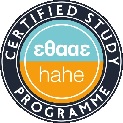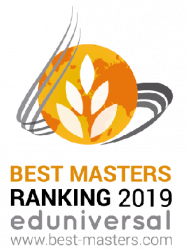In this issue we are excited to present a number of articles that investigate the impact of Artificial Intelligence on the management of human resources and talent. As a significant part of the debate around AI concerns how it already influences and increasingly in the future will influence jobs, both in terms of job content and whether AI threatens to eliminate many jobs, this topic is of central importance.
The texts, authored by HR professionals, educators and researchers, converge towards the opinion that AI is significantly transforming HR and leadership by augmenting, not replacing, human judgment. When applied responsibly and ethically, it enables better decisions, stronger engagement, and more meaningful work, provided organizations balance technological efficiency with empathy, trust, and human connection.
Two joint surveys by kariera.gr and the Athens University of Economics and Business, led by Professor Ioannis Nikolaou, reveal a Greek labor market in dynamic transformation. Professor Nikolaou highlights that nearly half of employees are actively job hunting, driven by pay, stress, and lack of recognition, while valuing respect, balance, and growth. Employers focus on attraction, retention, and flexibility but risk depersonalizing recruitment through automation. Both sides rely on digital tools, yet they desire to enhance human connection. Soft skills, leadership quality, and transparent communication emerge as key success factors. The challenge for HR leaders: balance technology with empathy, and redesign employee value propositions to focus on purpose of the objectives and tasks in jobs.
In the second article, Serafim Karaiskos, Executive Director, Greece & Cyprus at ICAP People Solutions, highlights that leadership has long relied on intuition — the “gut feeling” of business leaders and the “battleground awareness” of commanders, making parallels to his military experience. But in today’s data-driven world, instinct alone is no longer enough. He argues that the best outcomes arise when human judgment combines with the best intelligence, and when, then, the “Augmented Executive” uses AI as a strategic ally to clarify intent, improve decision-making, coach teams in real time, and uncover hidden talent. AI becomes a force multiplier, enhancing, not replacing, human leadership.
Fani Pagona, Principal, Tech Market Advisory at Code.Hub, exposes how AI is transforming HR from an administrative function into a strategic partner that enhances recruitment, engagement, and learning. Code.Hub applies AI across these pillars through custom models and platforms. In recruitment, AI tools cut time-to-fill by over 50%, automate candidate evaluation, and improve decision-making. In engagement, predictive analytics and personalized insights reduced turnover from 16% to 4.2%. In learning and development, AI-driven platforms like TOM and mentoring systems boosted promotions, productivity, and goal completion. The key lesson: AI delivers value when adapted collaboratively, empowering people with better data, insights, and time for meaningful work, factors that shape HR’s future today.
In the fourth article Ioannis Pontikas, Board Member and former Managing Director of Hire PP, discusses the ways that AI redefines how organizations attract, engage, and develop talent. AI’s strengths -data processing, automation, and personalization- free HR professionals from repetitive tasks, allowing focus on strategy and relationships. Yet, AI’s rise brings ethical challenges around privacy, bias, and transparency, demanding strong governance and compliance with frameworks like the EU AI Act. Leaders agree that AI should complement, not replace, human judgment, fostering trust and inclusion. Hire PP exemplifies responsible AI use by ensuring fairness, security, and transparency. The key question ahead: how can AI make workplaces not only more efficient, but also more ethical and human?
Each issue of i-MBA SCOPE also contains alumni contributions and news, and updates about program activities. i-MBA Alumna Iliana Karvela Kalogeraki of Workable, shares exposes challenges from AI in talent acquisitions. It is also our great pleasure to welcome and briefly present the new cohorts of talented and progress-seeking individuals, the Full-Time and Part-Time 28 students.
We further highlight an important achievement of the program, with the Eduniversal 2025 ranking of the Part-Time MBA International Program reaching number 5 globally from its previous 6th position. This impressive achievement awards the efforts and satisfaction of all program stakeholders, students, faculty, alumni, staff, recruiters and other business partners, whom I like to warmly thank.
Other news presented in the issue cover the 2025 Career Fair, and Graduation, the Second Energy Summit by the Energy and Sustainable Development Student Club, the Lugano Summer School, the Mentoring Program and many more exciting news that happened during the past six months in the MBA International.
Find i-MBA SCOPE on LinkedIn, as a LinkedIn Newsletter!
Regular postings of new and classic SCOPE articles, in combination with exclusive content, contribute to diffusing knowledge on timely business trends and practices from professors, alumni and business partners of the MBA International. Welcome to subscribe!
Call for Contributions
We are eager to discuss contributions to subsequent issues of i-MBA SCOPE with graduates and business partners. We look forward to interaction concerning topics and contributions! Welcome to reach out at imba@aueb.gr!
With Best Autumn Regards,
Eric Soderquist
Director, MBA International Program















